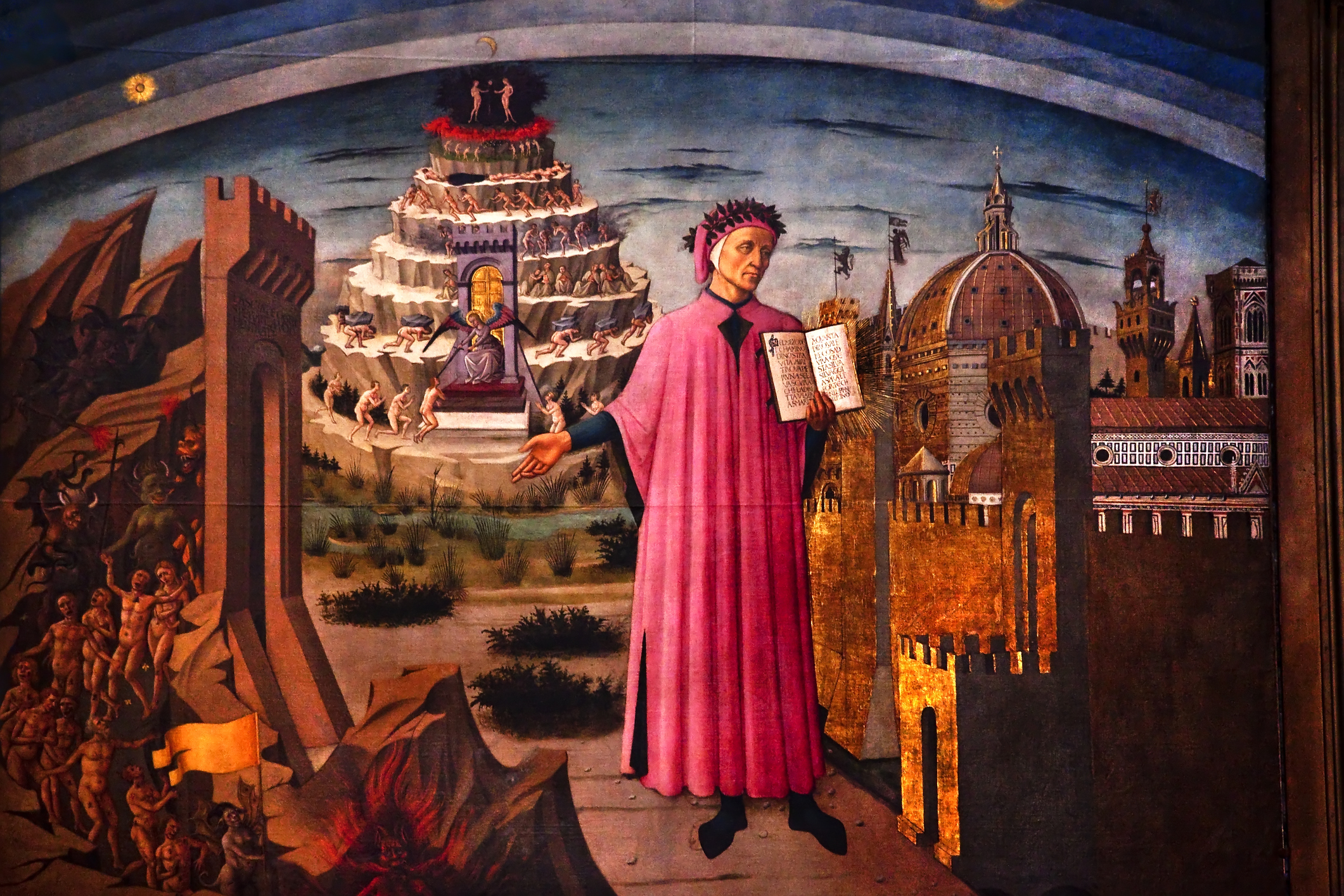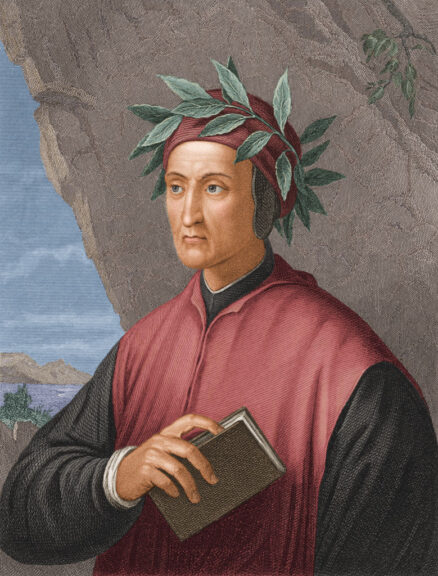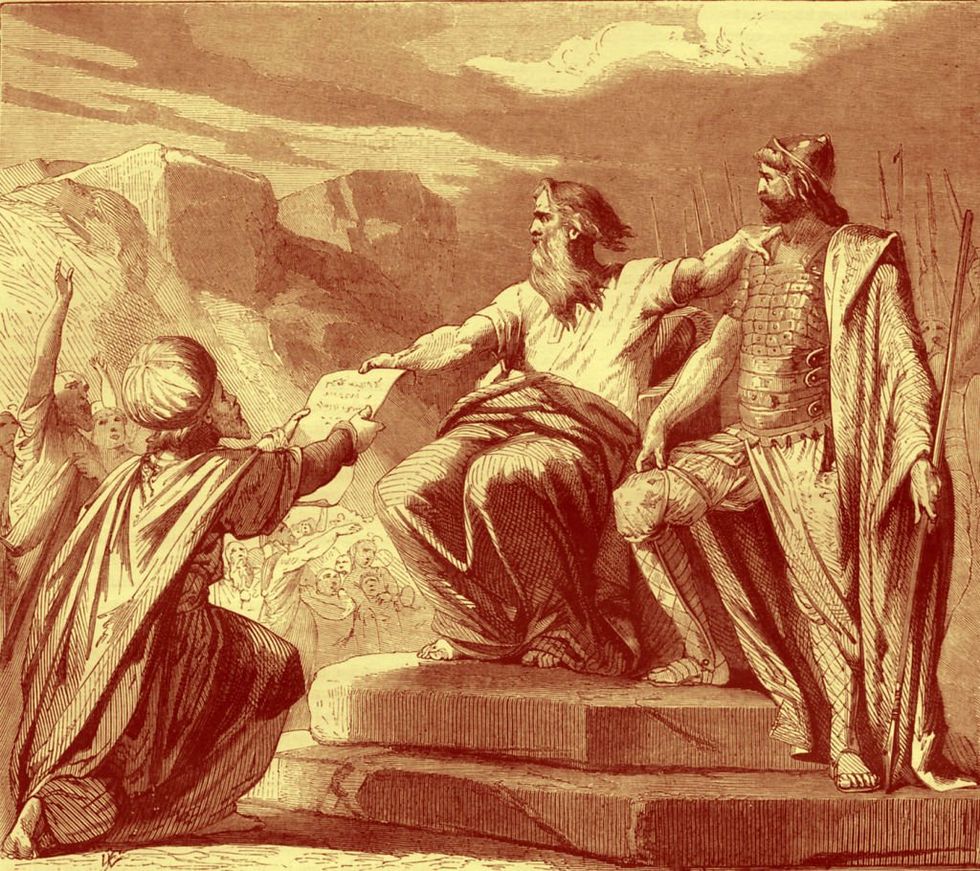Dante And The Redemption Of Politics, Part I: Understanding Dante’s Vision
The following is part one of a four-part series taken from a speech delivered by Michael Knowles at the National Intercollegiate Studies Institute Honors Conference. * * * Dante Alighieri was an Italian poet, politician, and political philosopher. The occasion of writing his magnum opus, the “Divine Comedy,” came as a result of politics. But before we get ...

The following is part one of a four-part series taken from a speech delivered by Michael Knowles at the National Intercollegiate Studies Institute Honors Conference.
* * *
Dante Alighieri was an Italian poet, politician, and political philosopher. The occasion of writing his magnum opus, the “Divine Comedy,” came as a result of politics. But before we get into the poem, we need some historical context. Those of you who have read Dante know that politics is a recurring theme. You need a lot of context.
Dante served in political life for just over seven years from 1295 to 1301. There were two dominant political parties in Italy during Dante’s time: the Guelphs and the Ghibellines. The Guelphs supported the pope; the Ghibellines, the Holy Roman Emperor. Dante was a Guelph, and he fought the Ghibellines at the Battle of Campaldino in 1289.
The Guelphs won. But after the victory, they split into two factions: the Whites, who wanted to limit the temporal power of the pope, and the Blacks, who wanted to expand the temporal power of the pope. Dante was a White Guelph: pro-pope but also pro-emperor — the medieval Florentine version of a RINO.
Eventually, the Whites took control, and Dante ascended to Florence’s supreme governing council, the Priorate, on June 15, 1300. This is an important date. Because it occurs historically just two or three months after the action of the “Comedy” takes place. Dante wrote the “Comedy” from 1308 to 1321, but the events occur in 1300 over the course of seven days, from Holy Thursday through Easter Wednesday.
Dante served in the Priorate for two months. In 1301, both the Whites and the Blacks appealed to Pope Boniface VIII to resolve the conflict. You can infer what Dante thought of the man by the fact that Dante signals his damnation in Hell three years before the pope actually died.
While Dante entreated Boniface to help settle the civil war in Florence, Boniface sent Charles of Valois, brother of King Philip IV of France, into Florence with the Black Guelphs to ransack the city, slaughter Dante’s friends, and exile the Whites, including Dante, who was stripped of his property and threatened with death if he returned. Dante never saw Florence again.

Portrait of Italian poet, politician, and author Dante Alighieri (1265 – 1321), early 14th Century. Author of ‘The Divine Comedy.’ (Photo by Stock Montage/Getty Images)
Now, I know what you’re thinking: Who cares? Why do we need to know all these political minutiae to appreciate a poem about the afterlife? Isn’t the point of eternity that we don’t need to care about all this historical trivia?
An intelligent, widely read, deeply educated friend has made this complaint to me. He loves Dante’s cosmic vision, but he hates that Dante demands so much political and historical context. The references are just so particular. John Milton doesn’t demand that we memorize the annual register of Roundheads to appreciate “Paradise Lost,” but Dante insists that we learn about Forese Donati, Henry VII of Luxembourg, Charles of Anjou, and so many others. My friend in exasperation has joked that the poem could be called the “Divine Comedy: or, Guido Pizzarelli Gets His.”
But that’s the point. Politics and the particularity of politics are crucial to understanding Dante’s vision — because Dante understands that politics is the medium through which our salvation occurs. We are pilgrims who will reach our final destination, wherever that may be, only through history. The journey of our life will not occur through teleportation.
Our pilgrimages entail particular deeds done with particular people in particular places as well as particular words said in particular languages — languages which are, as Dante’s decision to write the “Comedy” in the vernacular underscores, historically contingent and constantly changing. If one were inclined toward academic jargon, one might say that Dante understands the whole cosmos through a hermeneutic of particularity.
WATCH: The Michael Knowles Show on DailyWire+
There is no escaping history. For us, there is no neutral or eternal standpoint. We must always be moving — in our minds, in our hearts, and in our bodies — because this is not our home. We are all exiles. The particularity of Dante’s exile from Florence is a literal representation of humanity’s allegorical condition since our first ancestors ate the forbidden fruit. All of history is and must be understood to be a kind of exodus.
Dante makes this point explicit in a letter to his patron in Verona, Cangrande della Scala. In the letter, Dante writes, “The sense of this work is not simple. … The first sense is that which comes from the letter, the second is that of that which is signified by the letter. And the first is called the literal, the second allegorical or moral or anagogical.” Dante points to the story of Exodus; he quotes from Psalm 113, which he again quotes in “Purgatory”: “When Israel went out of Egypt, the house of Jacob from a barbarous people, Judea was made his sanctuary, Israel his dominion.”
Dante says the literal meaning is “the exit of the Children of Israel from Egypt at the time of Moses.” The allegorical meaning is “our redemption done by Christ.” The moral of the story is “the conversion of the soul from the struggle and misery of sin to the status of grace.” And the anagogical sense — the mystical or eschatological sense — is “the leave taking of the blessed soul from the slavery of this corruption to the freedom of eternal glory.” One line, four layers of meaning.
To ask why Dante needs to include all these obscure references to political figures of the thirteenth and fourteenth centuries is to ask why God needs to lead a particular people at a particular time from Egypt to Jerusalem. It is to ask why God needs to send his particular Son to be born of a particular woman in the fullness of time in a particular town under the rule of a particular emperor to die on a particular Cross. That is simply how God tells his story — which is to say, that is how the story is told. We tell our stories with letters; God tells his story with us.
Dante begins his story in a similar way, with the literal and the allegorical, the particular and universal all immediately apparent. He begins, “In the middle of our life’s journey, I found myself in a dark wood.” Dante is at this point 34-years-old, about to turn 35, which is middle age, according to Psalm 90. (For some of us, this is the first of many harsh facts that will appear in the “Comedy.”)
Beyond the language of “me” and “I,” there’s something even more particular going on in the first lines of this poem. We notice the repetition of the same word three times. Three is obviously an important number for Dante. The poem is divided into three canticles: Hell, Purgatory, and Paradise. The rhyme scheme is what’s called “terza rima” — rhymes that occur in triplets interlaced. And three the number of the Trinity.
The repeated word is “selva” — wood. The translations don’t preserve the repetition, but in the Italian we read:
Nel mezzo del cammin di nostra vita
mi ritrovai per una selva oscura
ché la diritta via era smarrita.
Ahi quanto a dir qual era è cosa dura
esta selva selvaggia e aspra e forte….
“Selva,” “selva,” “selvaggia” — there’s the meaning of “savage” there, but it’s also as if he said “a wood that’s a woody wood.” Dante had a rather robust vocabulary. So why the repetition?
The answer, I believe, lies in Canto VI of “Inferno,” the first of the three political cantos. Dante’s “Divine Comedy” is so meticulously ordered and harmonious that it can be read not only vertically but also horizontally across the canticles. And the sixes are all political cantos because the sixth day is the final day of creation before God rests and the day when God creates man, the political animal. “Inferno” VI is about the city; “Purgatorio” VI, the nation; “Paradiso” VI, the Empire.
Originally Published at Daily Wire, World Net Daily, or The Blaze
What's Your Reaction?
































































































